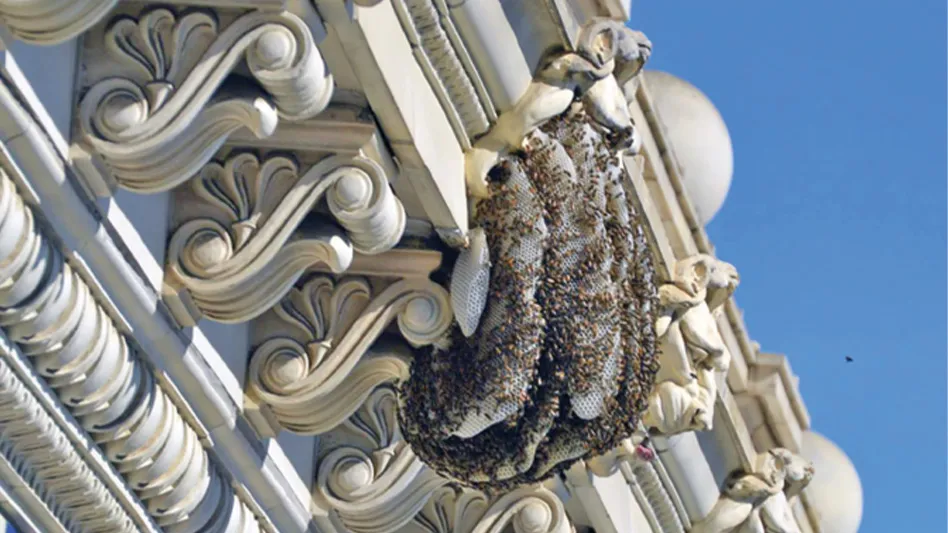I suppose the rationale is that individuals who receive training and take an examination in a category called "IPM" will practice it. Furthermore, this implies that existing state training and certification programs are not IPM focused. If this is the case, why not?
THE MEANING OF IPM. IPM is no more than a label and certification means nothing if the individuals and their companies don’t practice IPM. I have seen several companies that profess to be practitioners of IPM that use baseboard spraying as their standard treatment procedure and are quick to apply a chemical solution for any pest problem.
My contention is that all categories of training and certification should be founded in IPM. The need for states to create a category called "IPM" and for their PCOs to embrace this concept is because they are still grappling with defining and attempting to understand the principles of IPM. To create a separate category for IPM implies that all other certification categories are not based on IPM — and perhaps the training and testing materials are not either. If state programs are not based on IPM, they should be. The energies of the states and of our industry would be much better spent on rewriting training materials and certification exams. There are probably as many definitions of IPM as there are pests. There is no definition that our industry needs to reach out and embrace as the "holy grail" of pest management, nor should there be. With only one major exception the fundamental tenants of IPM remain the same. The exception is how pesticides are postured in the program. The definitions of IPM vary greatly on the use of pesticides, from the extreme of none at all to the more sensible approach based on need.
The U.S. Environmental Protection Agency’s brochure, Pest Control in the School Environment: Adopting Integrated Pest Management, defines IPM as an effective and environmentally sensitive approach to pest management that relies on a combination of common sense practices. IPM programs take advantage of all pest management options possibly including — but not limited to — the judicious use of pesticides. There is not a company in this industry which cannot live with in the bounds of that definition.
Using the fundamental ideas in the EPA definition, every company should shape its IPM program around the pest management practices and tools with which they are most comfortable. Why is it necessary for a company to be locked into a regulatory agency or state association definition of IPM?
THE INFORMATION IS OUT THERE. I am continuously amazed by the number of people in our industry who are still clamoring for more information on IPM. The industry is overflowing with information on IPM — through trade magazines, books and training programs. The sad part is that these people are looking for a cookbook answer or a prescription for treatment and unfortunately for them there is no such thing. IPM requires that the technician, the manager and the owner be knowledgeable about pests, industry tools and pest management strategies — and most importantly, to think and apply this knowledge.
Perhaps it is time for the industry to disassociate itself from the acronym IPM and leave it in the agricultural industry where it originated. Perhaps it would be best if the industry embraced the concept of reduced risk pest management, creative pest management or innovative pest management.
Reduced risk pest management doesn’t imply that the industry supports a reduction in the use of pesticides, it simply means we will seek means to reduce the risks associated with pest management practices, including the use of pesticides. In fact, the National Pest Control Association recently pledged its support of this concept by becoming a partner in the EPA’s Pesticide Environmental Stewardship Program (PESP). And, if the concept of reduced risk pest management is not in consonance with the Industry Awareness Campaign, I wonder what would be.
For those who believe that creating a category called "IPM" will solve these problems, nothing could be further from the truth. As an industry we have always proclaimed we are guardians of food, property, health and the environment. Isn’t it about time ALL of us practice what we preach?
Kramer is president of Innovative Pest Management, Brookeville, Md., and also serves as technical director of American Pest Management, Takoma Park, Md. He can be reached at 301/891-2600.

Explore the December 1999 Issue
Check out more from this issue and find your next story to read.
Latest from Pest Control Technology
- NPMA Presents Industry Awards at PestWorld 2024
- PCT, Syngenta Honor Crown Leadership Winners at PestWorld Ceremony
- Drain Flies and Fruit Flies in Food Facilities
- A Leg Up
- Chicago Named No. 1 on Orkin's Rattiest Cities List for 10 Consecutive Years
- NPMA Reflects on Sustained Growth, New Initiatives at Pest World ’24
- Envu Signs Definitive Agreement to Acquire In2Care
- Second October Hurricane Disrupts Business Operations, Pest Pressure for Southern PCOs





